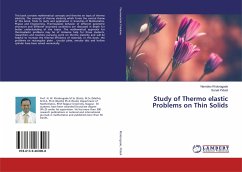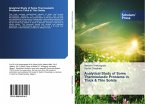High Quality Content by WIKIPEDIA articles! In mathematics, in the realm of group theory, a group is said to be thin if there is a finite upper bound on the girth of the Cayley graph induced by any finite generating set. The group is called fat if it is not thin. Given any generating set of the group, we can consider a graph whose vertices are elements of the group with two vertices adjacent if their ratio is in the generating set. The graph is connected and vertex transitive. paths in the graph correspond to words in the generators. If the graph has a cycle of a given length, it has a cycle of the same length containing the identity element. Thus, the girth of the graph corresponds to the minimum length of a nontrivial word that reduces to the identity. A nontrivial word is a word that, if viewed as a word in the free group, does not reduce to the identity. If the graph has no cycles, its girth is set to be infinity.
Bitte wählen Sie Ihr Anliegen aus.
Rechnungen
Retourenschein anfordern
Bestellstatus
Storno








